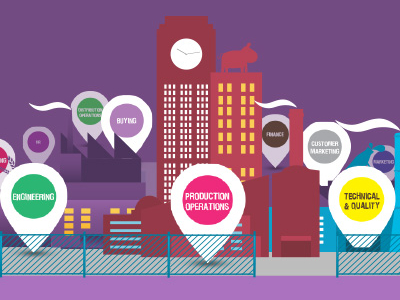What’s it all about then?
As a Technical Brewer you’ll be responsible for managing the production of lagers, ales, porters and stouts and ensuring that all the products are of high quality.
If you work for a small brewer you could oversee the entire process, from sourcing raw materials through to packaging of the finished product; in a larger brewery you might manage either a specific part of the process, or one or more products.
You’ll also develop, test and produce new beers to meet market demands.
What might I be doing?
You might be responsible for all the production or perhaps specialise in one area, but your role is likely to include many of the following:
- Purchasing raw materials such as hops, yeast and cereals
- Liaising with suppliers to ensure raw material availability
- Checking brewing conditions and product quality
- Working with lab technicians who conduct product sampling
- Retaining detailed records of the brewing process to ensure consistency
- Ensuring all equipment is properly cleaned and maintained
- Planning budgets and controlling levels of stock
- Developing and testing new beers
- Managing personnel to ensure maximum productivity and effectiveness
- Overseeing the packaging process
- Implementing technical improvements and using IT
What will be expected of me?
You’ll need to have a good level of scientific knowledge and be familiar with the technical language of brewing.
You’ll be expected to show strong leadership skills, commercial awareness, and decision-making ability if you’re going to succeed as a Technical Brewer.
This is a pretty “hands on” role so you’ll need to be physically fit and be happy working in an environment that can be very hot, humid and noisy – this also means wearing protective clothing.
You’ll also need to be creative enough to develop seasonal and speciality beers.
Other than the above you’ll be expected to have the usual attributes of a successful manager, including organisational, communication, problem solving skills and so on.
What can I expect?
You can expect to work around 40 hours per week, which might involve shifts, depending on the exact nature of the role. The hours you work can also be dictated by the processes occurring at any specific time.
Although much of your time is based on the factory floor, you can also expect to have some office work such as recording data, dealing with suppliers and dealing with management and personnel.
If there’s an emergency you can expect to be called in to work at short notice, particularly if you work for a small brewery that doesn’t have shift work.
Many microbreweries are now operational throughout the UK, so you could be employed close to home; however, you’ll possibly have to relocate if you’re looking to work for a large-scale brewery business.
What qualifications do I need to get in?
To get a job as a Technical Brewer you are probably going to need a degree in a relevant subject. These include:
- Food Science or Food Technology
- Chemistry or Chemical Engineering
- Microbiology
- Biology or Biological Science
- Biochemistry
Should you wish to study specific brewing skills then you could consider an Honours degree in Brewing and Distilling.
Some large brewers have graduate recruitment schemes, but places are extremely limited, and you need to check company websites for details of how to apply.
Experience in a brewing environment is also useful and, having achieved a relevant science degree, you could also think about specific brewing courses.
Where would I get these qualifications?
The science courses listed above are widely available and you will likely have a large range of options in every part of the UK.
Conversely, the BSc with Honours in Brewing and Distilling course is only available at the International Centre for Brewing and Distilling at Heriot Watt University.
If you’re accepted as a Graduate Trainee in a major brewing company, then you’ll be offered intensive skills training in all aspects of the brewing process.
The Institute of Brewing and Distilling (IBD) also offers a range of training courses that are suitable for both novices and more experienced brewers.
What about further training?
You could consider postgraduate qualifications as the next step, and the Universities of Nottingham and Sheffield both offer brewing qualifications.
As mentioned above, the Institute of Brewing and Distilling offers advanced courses, and these culminate with the Master Brewer qualification.
Membership of the Institute could also prove useful for your career prospects and will help you enhance your experience and keep bang up to date with developments in the sector.
Brewlab also offer loads of courses from start up brewing for beginners right through to the 9-week Diploma in British Brewing Technology.
Online courses are also available.
Anything else I might need to know?
Yes, there has recently been a lot of growth in the micro-brewing sector; this means that more opportunities are now available for those with qualifications and experience – if you’re 18 or over you could check if any local micro-brewer would be prepared to allow you to work shadow them; this could give your CV the extra wow factor and get you a start in a successful brewing career.
With experience you could progress to senior brewer or technical director or you set up your own micro-brewery.
 cy
cy





